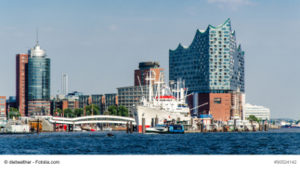
The leaders of the G20 will meet on 30 November and 1 December in Buenos Aires for their annual summit. They need to acknowledge that the last two years have been characterized by strong headwinds for the world economy. This time, however, it is not a mixture of poor macroeconomic policies and bad business decisions – as in 2008 when they met in Washington for their first summit – that endangers the well-being of billions of citizens around the globe. This time the threat stems from deliberate political decisions, in particular on trade.
Schlagwort: Global Governance
-
International Economic Cooperation in Troubled Times: A Call for Strong Action by the G20
-
The G20 @ 10 conference: Assessing the benefits, limitations and the future of global club governance in turbulent times
 In Buenos Aires on 30 November and 1 December 2018, the G20 is having its 10th anniversary as a summit format at the leaders’ level. On 14 and 15 November 2008, this previously-obscure group of finance ministers and central bankers of the nineteen most “systemically relevant” countries and the EU was transformed into a forum for international leaders to meet with a view into the abyss of the global financial crisis that originated in the US and spread fast across the world. Ten years and 12 leaders’ summits later, the G20 has moved beyond its 2008-09 role as a crisis-management forum and became the self-described “premier forum for […] international economic cooperation.” In this capacity it is now facing new demands to tackle global challenges such as climate change, digitalization and pandemics. As its agenda has expanded and the urgency of the crisis fades, the G20 faces questions regarding its relationship to other formal institutions of global governance, such as the United Nations, its effectiveness in dealing with global challenges as well as its legitimacy and accountability vis-à-vis its people and the 174 non-members.
In Buenos Aires on 30 November and 1 December 2018, the G20 is having its 10th anniversary as a summit format at the leaders’ level. On 14 and 15 November 2008, this previously-obscure group of finance ministers and central bankers of the nineteen most “systemically relevant” countries and the EU was transformed into a forum for international leaders to meet with a view into the abyss of the global financial crisis that originated in the US and spread fast across the world. Ten years and 12 leaders’ summits later, the G20 has moved beyond its 2008-09 role as a crisis-management forum and became the self-described “premier forum for […] international economic cooperation.” In this capacity it is now facing new demands to tackle global challenges such as climate change, digitalization and pandemics. As its agenda has expanded and the urgency of the crisis fades, the G20 faces questions regarding its relationship to other formal institutions of global governance, such as the United Nations, its effectiveness in dealing with global challenges as well as its legitimacy and accountability vis-à-vis its people and the 174 non-members.(mehr …)
-
The Future of Globalisation – Introducing our blog

Debates, based on solid empirical research, are increasingly important in view of a global system fraught with mounting uncertainties.
-
Towards a trickle-up system of global governance

Science and Knowledge at the Centre In the immediate aftermath of President Trump’s decision to leave the Paris agreement, the sixth largest economy of the world, California, signed an agreement with China to fight climate change.
While non-binding, such cooperation represents a “trickle-up” approach to global climate change governance and is part of a wave of initiatives from non-state actors including civil society, the private sector and local authorities. -
Could Hamburg signal the end of an era for the G20 as a global steering committee?
 In a potentially ominous sign for this year’s G20 Summit, pieces from Wagner’s Götterdämmerung were played to a sold-out audience in the Elbphilarmonie (Hamburg’s new concert hall, which is also the venue for the G20 Summit starting July 7). Translated into English as ‘the Twilight of the Gods’, the opera is the final episode in the lengthy ring-cycle saga which looks at the rise and fall of rule by the supreme powers, and how infighting among the gods in Valhalla is the cause of their ultimate destruction. Were it not five hours in duration, Angela Merkel could do worse than reminding G20 leaders of the themes Wagner’s opera addresses ahead of their two days of meetings.
In a potentially ominous sign for this year’s G20 Summit, pieces from Wagner’s Götterdämmerung were played to a sold-out audience in the Elbphilarmonie (Hamburg’s new concert hall, which is also the venue for the G20 Summit starting July 7). Translated into English as ‘the Twilight of the Gods’, the opera is the final episode in the lengthy ring-cycle saga which looks at the rise and fall of rule by the supreme powers, and how infighting among the gods in Valhalla is the cause of their ultimate destruction. Were it not five hours in duration, Angela Merkel could do worse than reminding G20 leaders of the themes Wagner’s opera addresses ahead of their two days of meetings.
